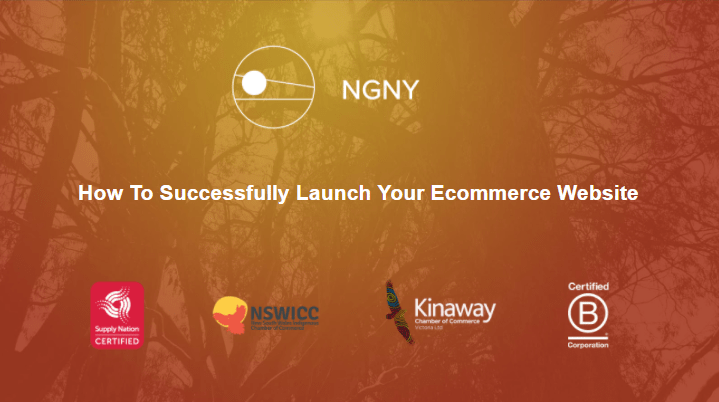
The breakthrough of ecommerce paved the way for many online businesses to become household names. If before, the only way to shop is through the traditional way which means going to the physical store to actually buy a product, now, through ecommerce you can shop ‘til you drop from practically wherever you are through your gadgets.
What is ecommerce and some examples of it? Ecommerce businesses refer to those businesses that transmit goods, services, and funds over the internet—vary in size and scope, from retail behemoths like Amazon to Etsy craft sites. Online shopping is just one of many areas that have seen extensive growth over the past five years. According to a report from the U.S. Census Bureau, in the third quarter of 2019 alone, U.S. ecommerce sales amounted to approximately $154.5 billion, accounting for 11.2% of all retail sales in the nation.
Since this has been the widely used platform, potential business owners must see to it that they are ready to take on the challenge from conceptualizing an idea to its execution and implementation. Sure, it isn’t a linear process but thanks to success stories and the science behind e-commerce and all these can be learned from and are attainable. With the digital era and access to information are within our reach, then it is safe to say that ecommerce is at the tip of your hand. You just need to familiarize your cards before venturing into the field.
If you want to consider venturing into ecommerce, the first question is ‘Where and how do I start?’ This guide is here to help you start making that vision of yours into a reality by shedding light on how to successfully launch your ecommerce.
1. Finding the right products to sell or services to provide.
You can never go wrong with starting to plot out what exactly it is that you want to sell online. The first step to building an ecommerce business is knowing what products or services to provide online for free direct-to-consumer. This often is the most challenging part of starting a new online business. However, if you have a promising idea in mind, you might want to dig deeper into developing it into a feasible business plan.
2. Obtaining your product.
Once you’re able to determine the specific product or service you ought to provide, your next step is figuring out where and how you’re going to obtain your products. Will it be something like sourcing from local artisans and your website will be the one-stop shop? Or would it be you who will also secure in-house production? The choice is all yours for as long as the products you are about to sell are readily available or at least can be produced at a reasonable amount of time with extensive quality.
3. Doing research and writing your business plan.
This is important for you to be sure that you’re getting a headstart among the hundreds of businesses with already established online presence. You might be selling the same thing so it is important that early on you can already assess and differentiate your business from them, specifically your brand. With numerous ecommerce sites out there, it is easy to get lost in the limelight and hype when you don’t stand out.
Writing your business plan must come in after this research to integrate your findings and your actual plans on how to proceed with the business idea. A business plan is vital in determining what to prioritize and how to effectively reach new customers.
4. Setting up your business and selecting a business name.
Now, you’re ready to start your ecommerce business by setting up an online store. Let’s start with naming your business. Aside from figuring out what to sell, another challenging decision is determining your business or brand name and choosing an appropriate and available domain name. Once you’ve selected a memorable name and registered a corresponding domain, it’s time to craft a simple logo. Aim for a minimalist logo which truly represents your brand.
5. Understanding the importance of search engine optimization (SEO).
With a better understanding of search engines, it’s time to build out your store. There are many crucial elements to consider. There are a variety of marketing strategies you might decide to utilize—Google ads, social media ads, word of mouth, and more. At the most basic level, you’ll want to optimize your business website for SEO and take advantage of any online marketing tools that are included within your ecommerce platform.
6. Choosing your sales channels
This is very important because the success of your sales relies heavily on where your products are accessible to buyers. One of the best ways to reach new customers is to choose sales channels where they already shop. This way, you can be sure that your products won’t be forgotten and there are more chances of your products being realized into a sale.
7. Preparing to launch.
It is imperative that as a business owner you have to comply with all the permits and licenses. As you prepare for the launch of your new business, there are several shipping and fulfillment elements you need to prepare for. Make sure all the legal requirements and logistical research are done properly so that once your customers will start placing their orders, you can be sure that you have control of the way their orders are being processed.
8. Marketing, an SOP for Post-Launch of business
Digital marketing is indispensable especially in ecommerce. If you want your business to thrive, you must invest an effort to connect with the consumers and get to know their feedback. You must prepare for comprehensive and catchy content on your website at the same time having a legit design to attract digital shoppers. While many new store owners should consider selling their physical products in person, the rest of digital marketing rests on doing one thing well: driving targeted traffic.




